Elections Turkey: Opposition strengthens in the face of Erdogan's weakness
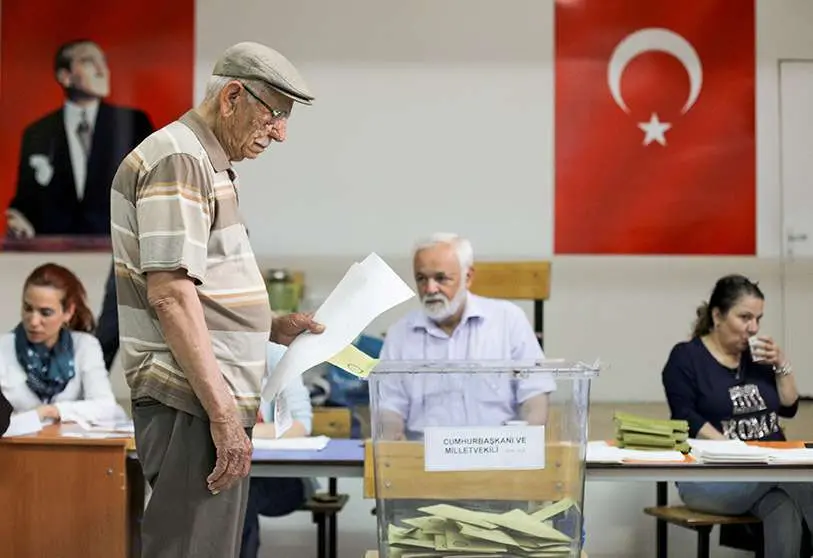
Turkey prepares for the upcoming presidential elections on May 14
"These elections are going to change our lives". These are the words of several young Turks with regard to the upcoming elections in Turkey scheduled for 14 May, just one month from today. These elections are fundamental for the country's future, as they could consolidate the totalitarian turn driven by the current president, Recep Tayyip Erdogan, or, on the contrary, chart a new horizon for the Eurasian nation.
Turkish society is looking forward to these elections which, according to the polls, are expected to be very close. Erdogan does not have it as easy as when he came to power in 2003 as Prime Minister. The critical economic situation, his authoritarian drift, as well as the response to the recent earthquake that hit the southeast of the country have placed the current Turkish leader in a delicate position ahead of the May elections.
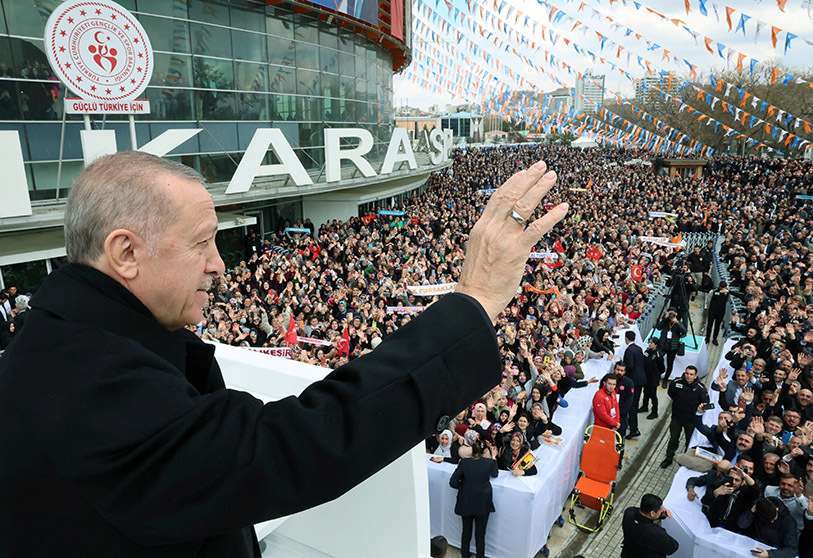
Part of the opposition, aware of this situation and the possibilities for change, has organised and united in a front against Erdogan. This coalition, called the Table of Six, is led by Kemal Kiliçdaroglu, leader of the secular, centre-left Republican People's Party (CHP). The CHP - founded by the father of the Turkish Republic, Mustafa Kemal Atatürk - is the country's oldest party and the main opposition party.
Also within this alliance are Meral Aksener's Iyi Party, Ali Babacan's Democracy and Progress Party (DEVA), Gültekin Uysal's Democrat Party, Temel Karamollaoglu's Happiness Party and Ahmet Davotoglu's Future Party. These formations are located at different points on the political spectrum and represent different ideologies. However, they all have a common goal: to oust Erdogan from power.
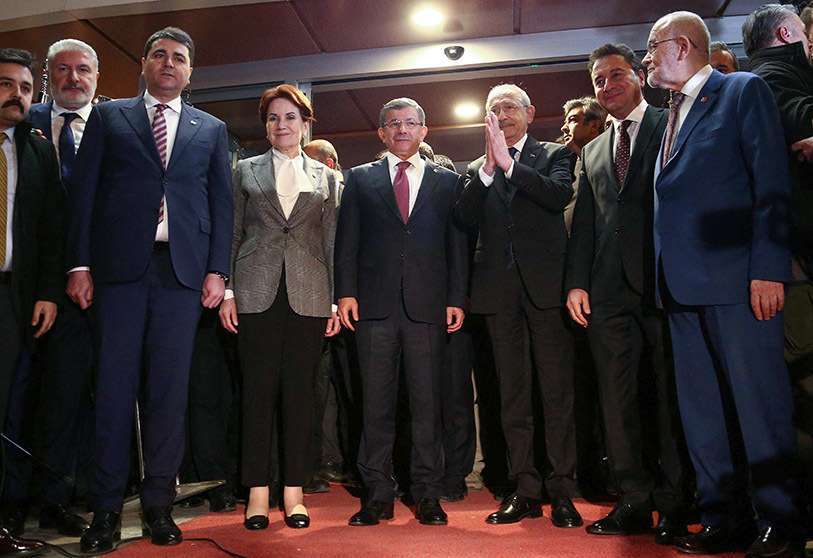
"We are very close to overthrowing the tyrants' throne", declared Kiliçdaroglu after being elected to head the coalition. The CHP leader has promised to govern Turkey "with consultation and consensus". "Our table is the table of peace. Our goal is to lead the country to prosperity, peace and joy," the 74-year-old politician was quoted as saying by Reuters.
"They seem to have formed a strong alliance, which is quite remarkable and unprecedented given the divisions inherent in Turkish politics," Shivan Fazil, a research fellow at the Stockholm International Peace Research Institute (SIPRI), told Atalayar.
Opposition presidential candidate Kemal Kılıçdaroğlu has released a series of videos with election promises. The latest one is about freedom of speech. "If I become president, you will be free to criticise me", he says. https://t.co/zJVz13D1Hr
— Julia Hahn (@juliahahntv) April 13, 2023
The Six Table presents itself as "an alternative political platform". "They have promised to restore a 'strengthened' parliamentary system, the rule of law, more freedom, and to abolish the executive presidential system that gave uncontrollable power to President Erdogan," Fazil notes.
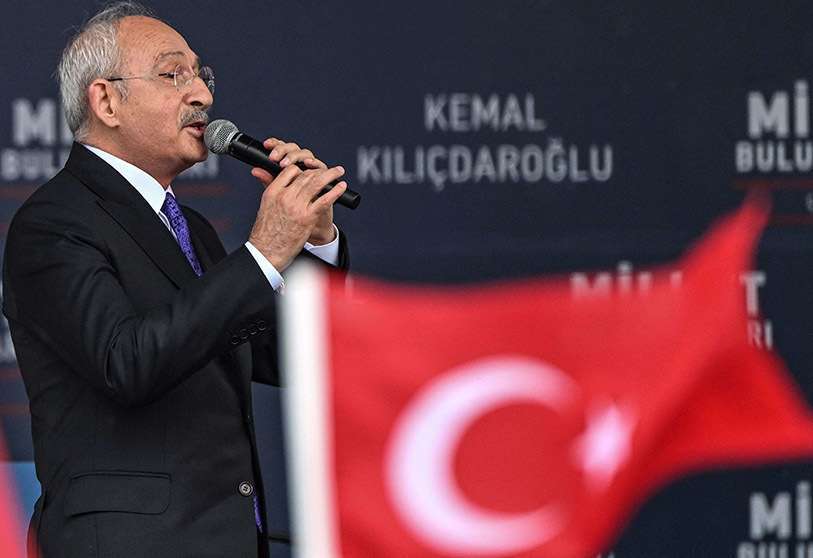
Apart from Erdogan and the coalition led by Kiliçdaroglu, the other two presidential candidates are Muharrem Ince and Sinan Ogan. Ince, a former CHP member, now leads the Fatherland Party, while Ogan leads the far-right Nationalist Action Party (MHP). Both have been criticised for favouring Erdogan as they split the opposition vote by not being part of Kiliçdaroglu's alliance, making it difficult for him to win in the first round.
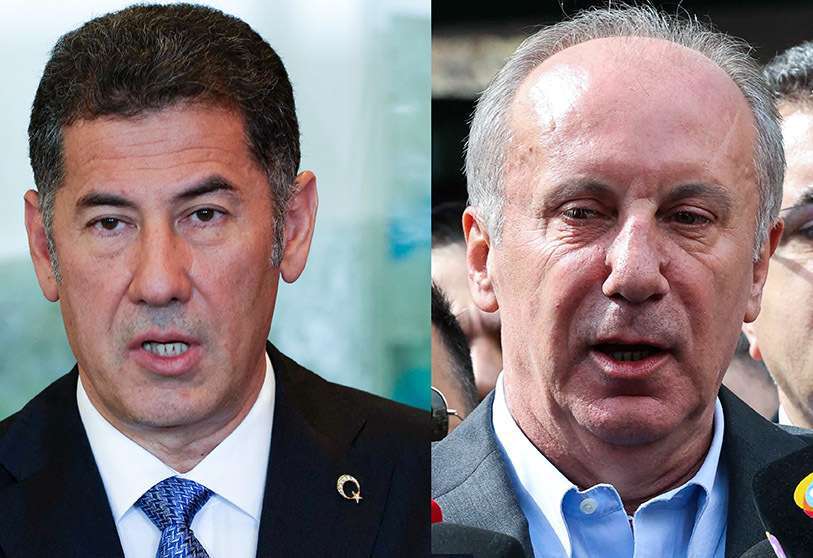
Should none of the presidential hopefuls win 50% of the vote on 14 May, Turks will return to the polls two weeks later to choose between the two candidates with the most votes in the first round.
Kiliçdaroglu, in addition to the political parties of the alliance, has the backing of the popular mayors of Istanbul and Ankara, Ekrem Imamoglu and Mansur Yavas, respectively, who could become vice-president in the event of a Kiliçdaroglu victory at the polls.
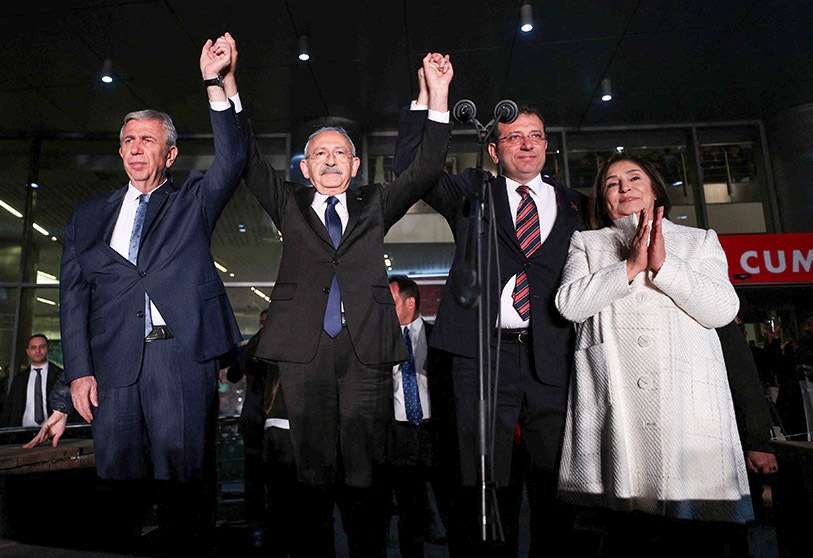
Even the country's pro-Kurdish political formation, the Peoples' Democratic Party (HDP) - and the third largest in parliament - has publicly announced its support for the CHP leader. "Our clear expectation is a transition to a strong democracy. If we can reach agreements related to fundamental principles, we can support him in the presidential elections," said HDP co-chair Mithat Sancar.
"The Kurdish vote could prove vital in tipping the balance in favour of the opposition," said Fazil, noting that the HDP has chosen not to nominate its candidate in order to avoid splitting the opposition vote. "The undecided Kurdish votes proved crucial in helping the opposition win key races in Istanbul and Ankara during the 2019 local elections," says the SIPRI researcher.
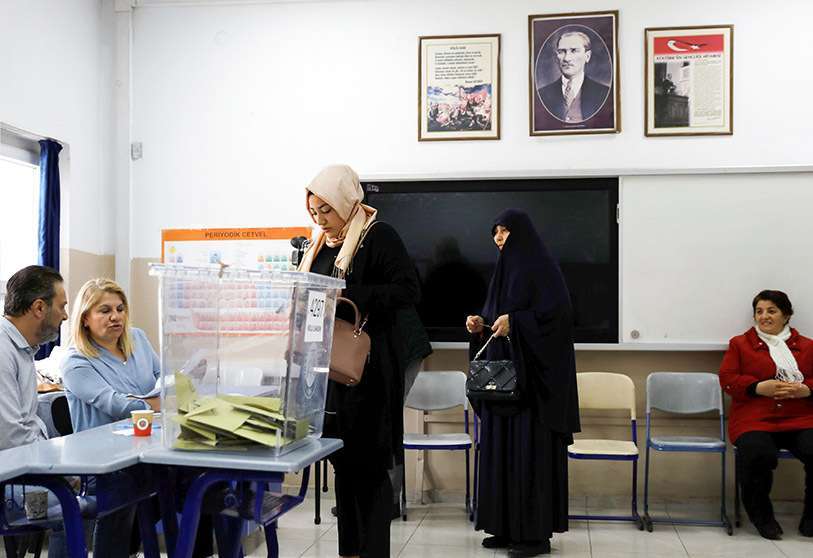
Valeria Scuto, senior analyst for the Middle East and North Africa at Sibylline, agrees, and believes that the pro-Kurdish HDP party 'will play a crucial role' in the May elections.
Despite the importance of this political formation, the HDP is facing numerous political pressures from Ankara. "In January, part of the money that the party receives from the state to finance its election campaign was frozen," adds Fazil.
Another challenge facing the pro-Kurdish party is the imprisonment of one of its most well-known and charismatic leaders, Selahattin Demirtas, who has been in prison since 2016. However, Demirtas is not the only political prisoner in the country. One of the key points of Erdogan's authoritarian drift has been the detention of journalists, activists and politicians.

Almost six years ago, the Turkish authorities arrested former president and former director of Amnesty International Turkey, Taner Kılıç and İdil Eser, as well as Özlem Dalkıran and Günal Kurşun, two other human rights activists accused of belonging to and aiding terrorist organisations.
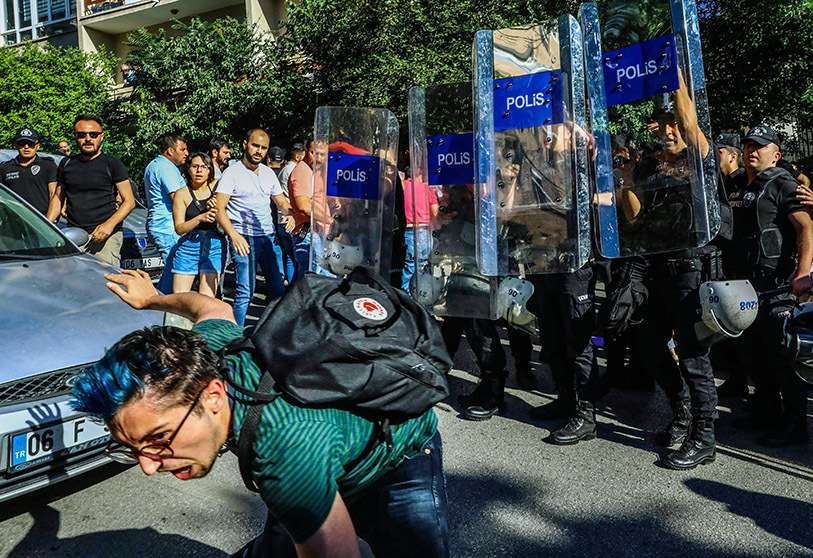
Indeed, the terrorism card is frequently used by Erdogan to prosecute critical voices, as happened last June to 16 journalists from three media outlets and the co-president of the Journalists' Association Dicle Fırat. All of them are currently in pre-trial detention without a formal indictment.
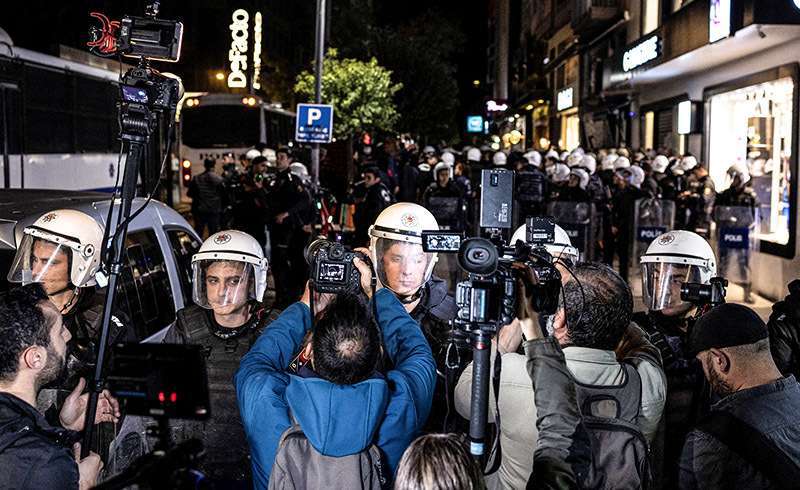
According to Reporters Without Borders (RSF), more than 200 journalists have been imprisoned in Turkey in the last five years. Thirteen of them are still in detention today. Turkish reporters have been subjected to harassment by the authorities while reporting on COVID-19 and the government's response.
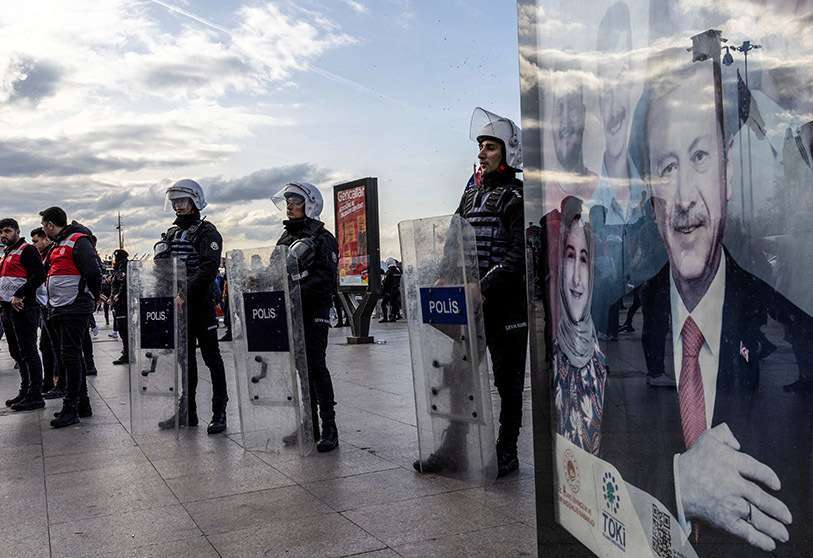
Similarly, several have been detained and investigated for reporting from areas affected by the recent earthquake in the southeast of the country. Days after the brutal earthquake in which more than 45,000 people lost their lives, Ankara censored social networks such as Twitter in an attempt to silence anti-government commentary.
The role of activists and journalists is key in a country where human rights are regressing by leaps and bounds. LGTBI+ and women's rights are being targeted by an increasingly conservative and religious government. In this regard, it is worth highlighting Turkey's exit in 2021 from the Istanbul Convention, an international treaty that establishes a legal framework against gender-based violence.
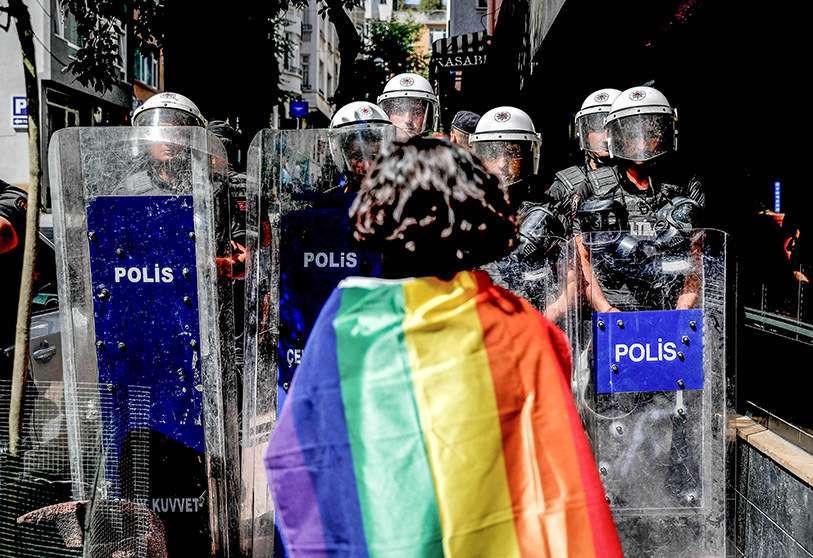
Erdogan has tried to shield his image and power by silencing criticism and opposition. Even the mayor of Istanbul, Imamoglu, was sentenced to two years and seven months in prison in December and politically disqualified for insulting the election commission in 2019. Imamoglu had emerged as a strong rival to Erdogan in the upcoming elections.
All these arrests and detentions follow in the wake of the president's 2017 coup attempt orchestrated by some members of the Turkish Armed Forces. This failed military uprising was followed by a purge against opponents of the government, including academics, judges, journalists, civil servants and members of the security forces that culminated in a constitutional referendum in April 2017 in which Erdogan managed to gain more powers. Since then, the president has not hesitated to make changes to the Magna Carta with the aim of consolidating his mandate.
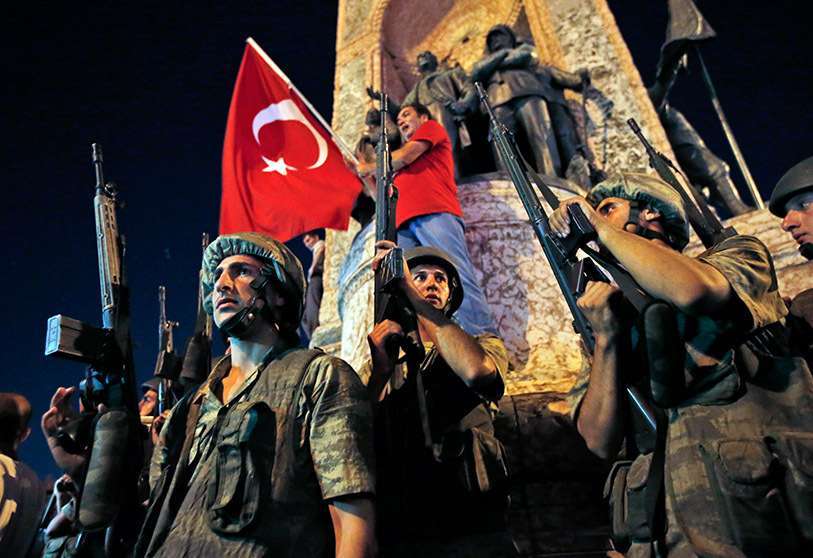
However, despite Erdogan's attempts to perpetuate himself in power, the president and his party, the AKP (Justice and Development Party), are particularly weak politically in these elections. Some of the latest polls indicate that Kiliçdaroglu would beat Erdogan in a second round by 53% to 47%.
The Turkish leader is aware of the potential of the Six Table and its leader, which is why he has not hesitated to attack the coalition on several occasions, as have many of the pro-government media. In some articles in the Daily Sabah newspaper, for example, we can find criticism of this alliance, which they claim will "provoke chaos" in the country in the event of a victory.

Furthermore, since the beginning of the election campaign, the current president has focused on the economy, a key element in the run-up to the elections and the main challenge for the new presidency. In recent years, Turkish citizens have seen their national currency depreciate against other currencies such as the dollar and the euro. At the beginning of the year, the Turkish lira reached an all-time low of 20.41 against the euro and 18.83 against the US currency.
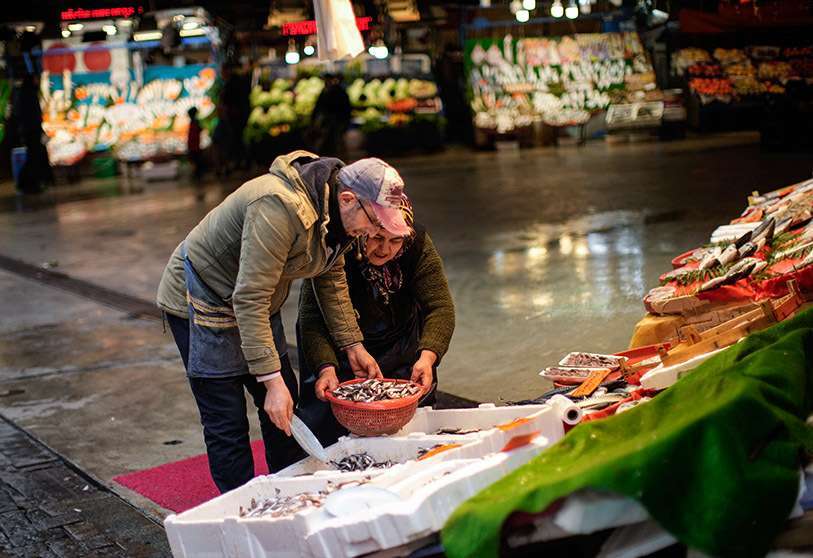
In addition to the Turkish lira's problems, the country faces a high inflation rate of 50.5%, according to official figures. However, economists and experts warn that the real rate is much higher. Last October, Turkey reached the highest level of inflation in 24 years. That month, prices rose to 85.51%.
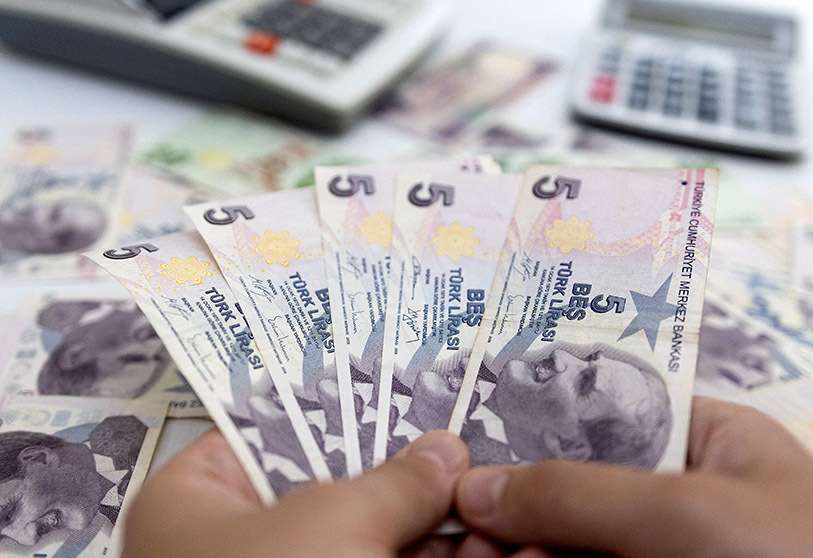
The economic measures adopted by the president have been criticised by international economists, as well as the multiple changes in the leadership of the Central Bank that have increased financial instability.
Despite this, Erdogan is convinced that he will be able to cope and improve the economic outlook. "We will reduce inflation to single digits and save our country from this problem," he declared during a campaign rally in front of a crowd in Ankara. The president, accompanied by his wife Emine Erdogan, also promised to boost economic growth, create jobs and increase per capita income. "We will continue to grow with investments, employment, production and exports," he said.
In the event of another Erdogan victory, Aurélien Denizeau, PhD in Political Science and International Relations, predicts an even bleaker economic outlook. "International investors do not trust Erdogan, so the country's economic situation is likely to worsen".
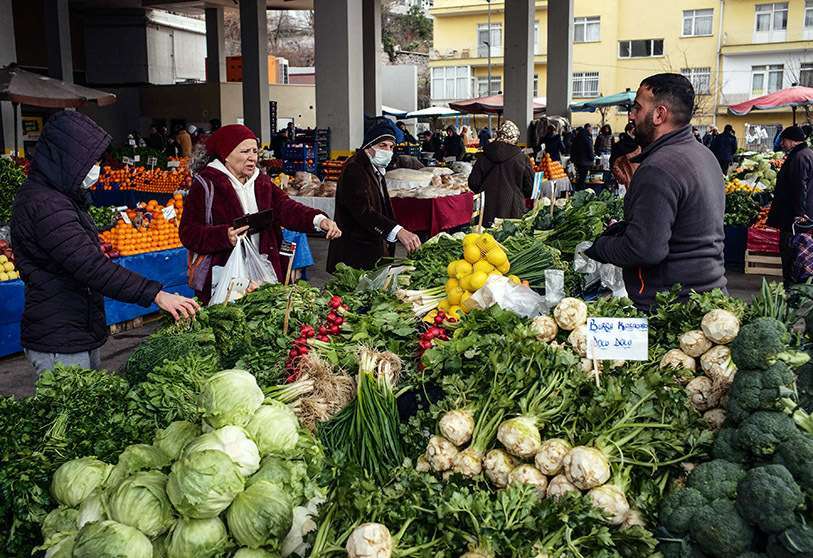
The opposition has also focused on the economy during early campaign events. The Six Table has promised a financial system integrated into the Western economy, economic growth of at least 5% over five years and an increase in GDP per capita, reports Al-Monitor. "This would mean the creation of at least 5 million new jobs and significantly curb the 10% unemployment rate," explains Mustafa Sonmez.
Kiliçdaroglu has also stressed that the Official Gazette will point out where and how taxes are spent in order to achieve full transparency. "If the people in power are not accountable to the people, there is no democracy," the presidential candidate stressed, according to Turkish media Durvar. Kiliçdaroglu has experience in this field, as he became politically known for his fight against corruption, especially within the AKP.
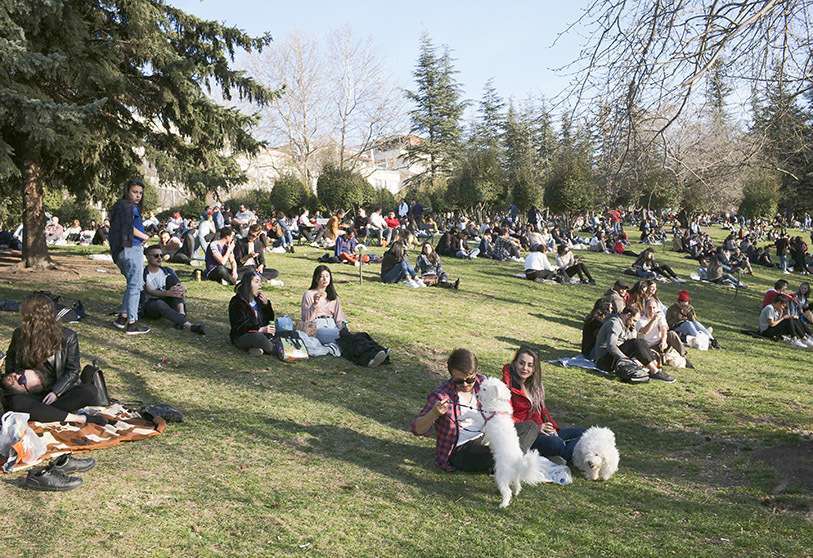
Unsurprisingly, Erdogan also made reference to the earthquake during the campaign kick-off, stating that the government's priority in the next term will be to "restore the cities that were devastated". The president announced the goal of building 650,000 flats in the affected areas.
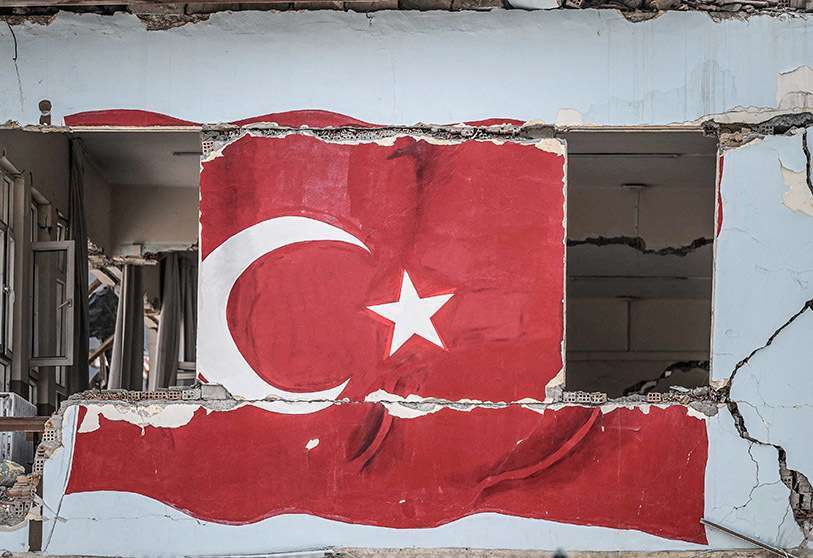
Erdogan was due to make a statement on the matter, as the brutal earthquake that devastated several Turkish regions was a major blow to the government, which has been widely criticised for the high death toll. The ruins and destruction caused by the strong tremors gave way to the indignation and anger of those affected, who accused the builders of not respecting anti-seismic standards in an area where earthquakes are frequent. "The magnitude of the earthquake revealed that building laws had been misapplied," says Fazil.
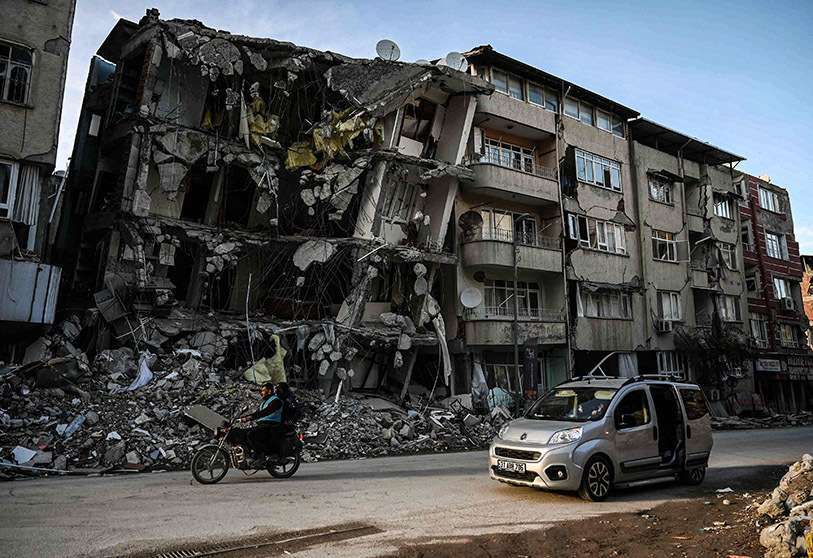
They also accused the government of turning a blind eye to violations by construction companies. "The discontent is aggravated by the government's granting of construction amnesties. The authorities granted legal exemptions in exchange for the payment of a fee for buildings that did not meet required safety standards," explains the researcher. In the aftermath of the earthquake, the government has also been blamed for being slow in delivering humanitarian aid to the affected areas.
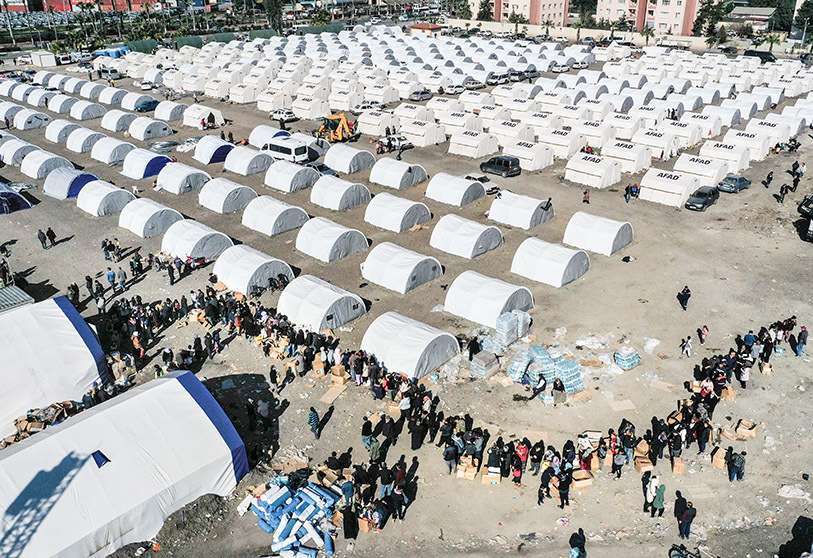
For these reasons, Fazil believes that this discontent "could be a catalyst that fuels further disillusionment with the AKP and strengthens support for opposition parties".
However, as Scuto notes, the government has not been significantly weakened by the effects of the earthquake. "In general, AKP voters have focused mainly on blaming the contractors for the catastrophe, not the Erdogan government," she explains.
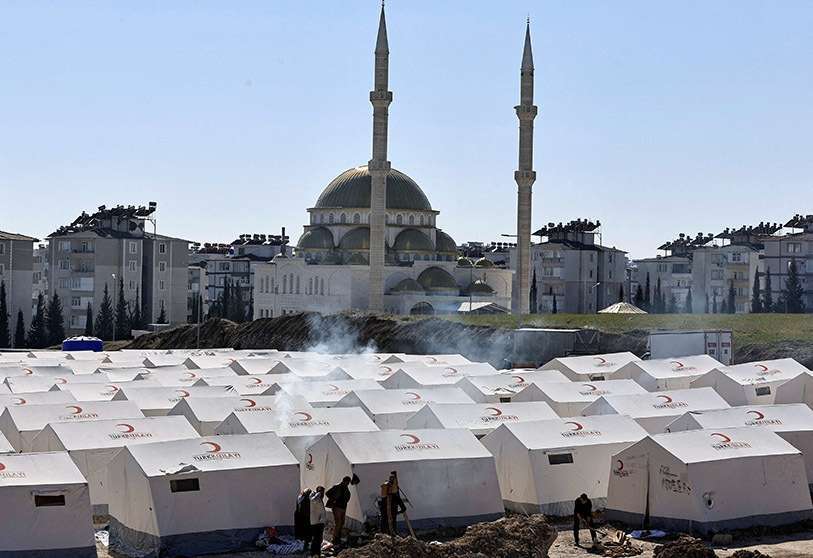
A month ahead of the elections, the opposition and Erdogan's detractors fear that the government will manipulate the election results in the earthquake-affected areas. Idris Sahin, a member of the Democracy and Progress Party (DEVA), told Reuters that his party has begun to review the voter lists issued on 31 December and compare them with the updated register in the affected cities to verify whether citizens who have changed residence are registered in their new polling stations. The same goes for the deceased, as Sahin fears that the votes of those who died in the earthquake and are still registered on the lists will be manipulated.
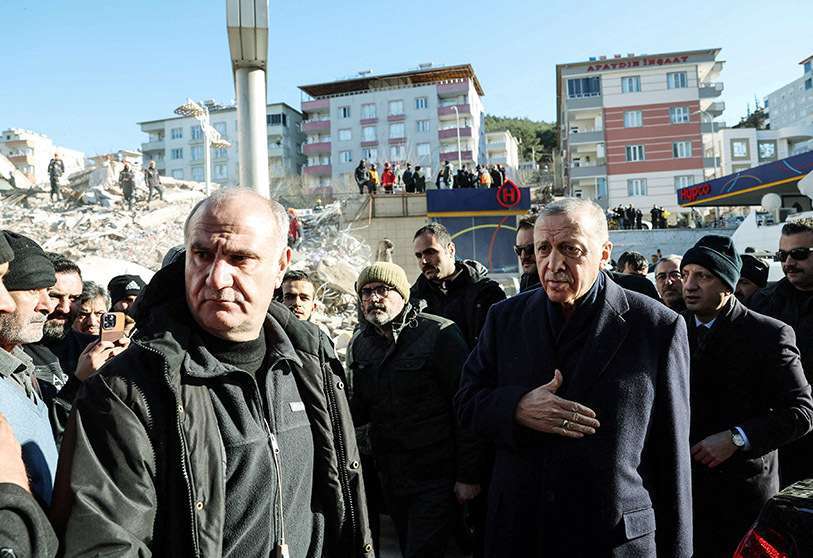
For this reason, people who have lost loved ones will go to their hometowns on election day to check that no one is trying to manipulate the vote, as in the case of Yigit, a 26-year-old student who lost his parents in the earthquake. "I will wait at the polls to make sure no one votes in his place," he told the news agency.
Scuto also posits this scenario. "Holding elections at such short notice after the two earthquakes will be a major logistical challenge and a potential threat to free and fair elections," she explains.
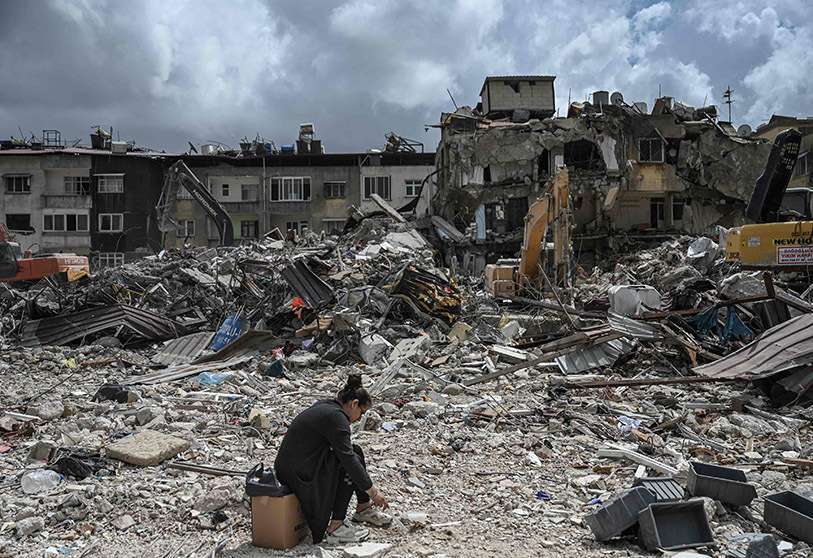
Erdogan's last term in office has been marked by changes in his foreign policy. After years of discord, Ankara has managed to significantly improve its relations with regional neighbours such as Saudi Arabia, the United Arab Emirates and Egypt. During Erdogan's tenure, Turkey has re-established diplomatic ties with Israel, with whom it has collaborated on security issues. There have also been signs of a possible rapprochement with Syria in recent months.
Saudi Crown Prince Mohammed bin Salman is welcomed by Turkish President Recep Tayyip Erdogan with a ceremony in Ankara, Türkiye.
— TRT World (@trtworld) June 22, 2022
The official visit will involve discussions on taking bilateral relations to a higher level in this new era between the two nations pic.twitter.com/JZzEZ68mND
At this point, as Scuto points out, in the event of a change of political leadership, the new government will face the additional challenge of securing regional partners, "in particular those countries that Erdogan has become close to in recent years".
"Across the Middle East (and North Africa) there is an expectation that Erdogan will remain in power after the elections," she adds.
A bitter relationship ends. Turkish President Erdogan and Egyptian President Sisi meet for the first time. The Qatari Emir Tamim bin Hamad Al Thani used the World Cup in Doha to bring the two together. Ankara has repaired relations with all Gulf countries, Israel, and Egypt. pic.twitter.com/SnSBJBwXe1
— Mike (@Doranimated) November 20, 2022
Erdogan has improved Turkey's foreign policy at the regional level, but relations with the EU, the US and NATO remain complicated. The Turkish president has maintained an ambiguous position on the war in Ukraine while blocking Sweden's NATO membership. With regard to the US, the main bone of contention is the US military presence in northeast Syria, as well as Washington's cooperation with the Syrian Democratic Forces.
Turkish Foreign Minister Cavasoglu hands @SecBlinken Turkey’s ratification documents for Finland to join NATO.
— Jennifer Hansler (@jmhansler) April 4, 2023
Finland is now in the alliance pic.twitter.com/cC2xg4vrwg
Kiliçdaroglu has promised to mend ties with Western partners, lifting the veto on Sweden's membership and restarting EU accession talks. "We will convey to all our allies and all European countries the message that Turkey has returned to the path of democracy," Ünal Çeviköz, Kiliçdaroglu's foreign policy adviser, told POLITICO.
Regarding the escalation of tensions with neighbouring Greece, Çeviköz acknowledged that Athens' post-earthquake aid "has provided an opportunity and created a new scenario".
Regarding Erdogan's foreign policy and the supposed change in the event of an opposition victory, Denizeau does not see the elections as having any influence on international policy. "On all the main issues (Ukraine, Armenia, Greece...), the opposition and Erdogan have the same vision," he says.
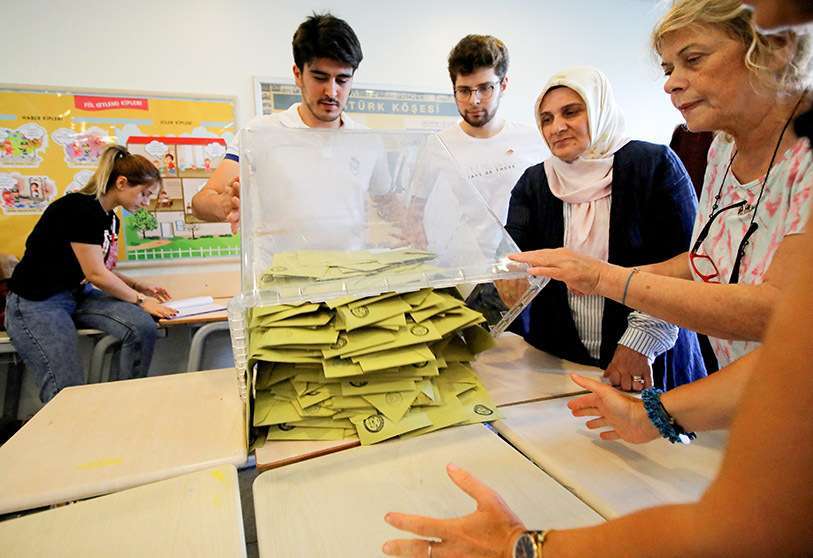
On 14 March, Erdogan completed 20 years in power. With these upcoming elections, the current president hopes to consolidate his power and perpetuate himself as the country's new 'sultan'. "If Erdogan wins, it would mean that we have a very weak understanding of democracy," admits a young Turk.
"People want a new life, fully secular and prosperous. I don't think Erdogan is in a position to deliver this. If he wins the elections, we are very likely to face a social crisis," says another. Turkey's young population will be a really interesting variable to watch in the upcoming elections. Among their main concerns: the economy, unemployment, education and the judicial system. "Young Turks will represent around 12 per cent of the total voters in the presidential and parliamentary elections and are less ideological than other demographic groups," notes Scuto.
On 14 May, the totalitarian leader will have to face a strong opposition, an economically stifled society that has witnessed the authoritarian turn of its president in recent years, and a large number of young people with no hope for the future. "For the moment, the opposition's victory is possible, but not assured," concludes Denizeau.








